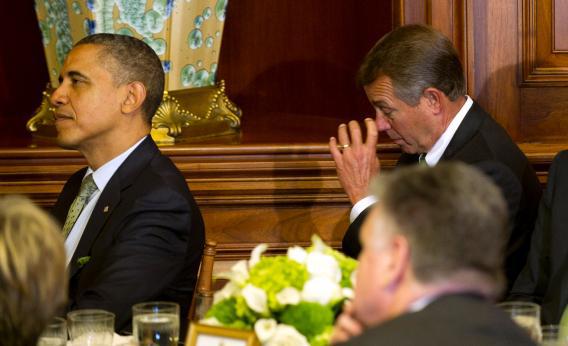The president has been shopping the self-serving idea that if he gets re-elected, congressional Republicans will magically start wanting to compromise with him on legislative proposals. As Ramesh Ponnuru writes, this basically makes no sense especially since nobody thinks Obama will do better in 2012 than he did in 2008. But that doesn’t mean 2013-’14 will look exactly like 2011-’12.
The key difference is the Bush tax cuts. The primary theme of the past two years has been the Obama administration’s effort to get Republicans to accept some kind of concession from him in exchange for agreeing to tax increases. The Republican position on this has been, basically, no. Low taxes are a key priority and there’s nothing Obama’s going to give up that’s going to make them change that. But if Obama gets re-elected, then the Bush tax cuts are set to expire. In fact, after the tax cuts have expired taxes will be higher than Obama says he wants.
That totally changes the debate. Now it’s about what concessions Congressional Republicans are willing to make in order to get Obama to agree to cut taxes. That’s the right shape for a bargain.
Democrats generally favor high taxes, but with much less preference intensity than Republicans muster on the other side so they ought to be able to work something out. This sort of dynamic laid the groundwork for bipartisan legislating in Bill Clinton’s second term, when the fiscal situation of the United States let Clinton agree to a capital gains tax cut in exchange for the creation of SCHIP and a few other concessions back in 1997. I’m not promising that 2013 will be a cornucopia of Obama-Boehner legislative deals, but it’s not true as a rule that divided government leads to legislative stasis and the expiration of the Bush tax cuts removes the big thing that stood in the way of grand bargains in the 112th Congress.
